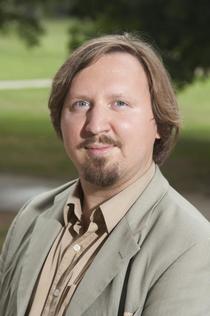Piotr Kosicki, European Historian, to Examine Catholic Social Teaching and Polish Transition to Democracy

The Notre Dame Institute for Advanced Study (NDIAS) and the University of Notre Dame Department of History are pleased to announce a jointly-sponsored public lecture by Piotr Kosicki, Assistant Professor of History at the University of Maryland, titled “The Life and Death of a Catholic Alternative: The Case of Tadeusz Mazowiecki.”
The lecture will be held on Thursday, February 26 at 4:00 p.m. in Room 140 of DeBartolo Hall.
During the 20th century, various European Catholics initiated a range of political projects charting a “third way” between liberalism and communism, with Catholic social teaching the basis for social and political activism. The recent death of former Polish Prime Minister Tadeusz Mazowiecki, who shepherded Poland’s transition from communism to democracy in 1989, offers an extraordinarily illuminating lens on Catholic “third way” projects. A devout Catholic intellectual who spent four decades attempting to harmonize Catholic social teaching with state socialism, Mazowiecki ultimately, as prime minister, broke with both to pursue free markets aggressively. This lecture explores his story and the question of why a prime minister of one of the world’s most Catholic countries was unable to build a political program around Catholic social teaching.
In addition to his public lecture, Professor Kosicki will offer an undergraduate seminar to students in the Departments of History, Political Science, Theology, and the Program of Liberal Studies.
Brief Biography of Piotr H. Kosicki
Piotr Kosicki specializes in the transnational history of modern Europe and its global implications, with particular emphasis on religion, especially Roman Catholicism, politics, historical memory, and the entangled history of ideas and activist networks.
He is the author of Between Christ and Lenin: Catholicism, the Social Question, and Poland’s Place in the World, 1891-1991 (forthcoming), a second monograph in Polish, and more than a dozen articles in English, French, German, Polish, and Slovak, most notably: “Caritas across the Iron Curtain? Polish-German Reconciliation and the Bishops’ Letter of 1965” in East European Politics and Societies. He is the editor of Re-mapping Polish-German Historical Memory: Physical, Political, and Literary Spaces since World War II (2011, with Justyna Beinek); The World of 1989: Connections across Continents and Oceans in a Time of Global Revolution (forthcoming, with Kyrill Kunakhovich et al); and Vatican II Behind the Iron Curtain (forthcoming) as well as the Spring 2007 special issue of the International Journal of Sociology (“Aggressors, Victims, and Trauma in Collective Memory”).
Professor Kosicki is the recipient of Fulbright, Chateaubriand, and ACLS/Mellon New Faculty Fellowships, as well as multiple Title VIII grants from the Woodrow Wilson International Center for Scholars. He currently serves as the W. Glenn Campbell and Rita Ricardo-Campbell Hoover National Fellow at Stanford University.
Questions regarding Professor’s Kosicki’s lecture may be directed to Carolyn Sherman, at the NDIAS (csherman@nd.edu).

Originally published by Grant Osborn ’06, ’09M.F.A. at ndias.nd.edu on February 16, 2015.